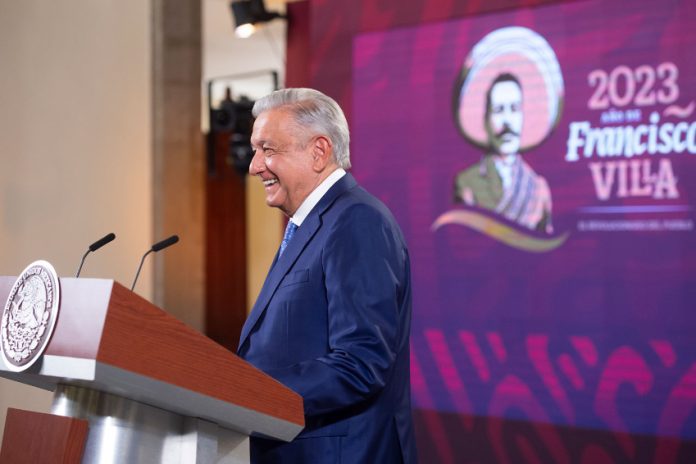Fifteen months after contracting COVID-19 for a second time, President López Obrador announced in a social media post last Sunday that he had tested positive once again.
He asserted that his illness wasn’t serious, but rumors about his health – fueled by a report in a Mérida newspaper that he had fainted after an apparent heart attack – proliferated nevertheless.
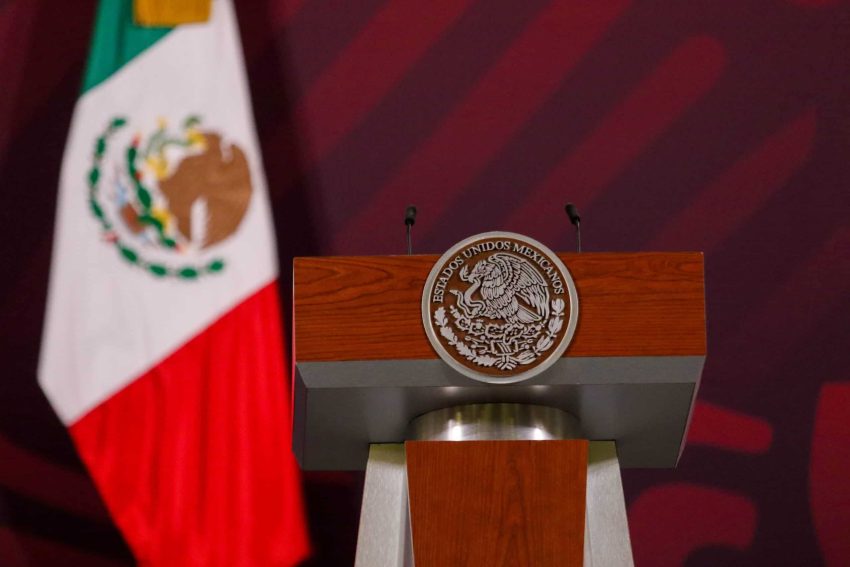
Speculation only increased early in the week when Monday, and then Tuesday, passed without a direct message from the president, even as his colleagues, including Health Minister Jorge Alcocer, repeatedly assured reporters – and the Mexican people – that he had COVID-19 but was otherwise in good health.
AMLO finally dispelled the rumors on Wednesday, emerging from isolation to record a video message in which he declared he was fine, but admitted that he briefly fainted while attending a meeting in Mérida last Sunday.
By Friday he was back in front of reporters for the government’s fifth and final press conference of the week.
For the second time in as many years, the president’s fellow tabasqueño and close confidante, Interior Minister Adán Augusto López Hernández, took the reins of the mañaneras, standing in for his convalescent superior from Monday to Thursday.
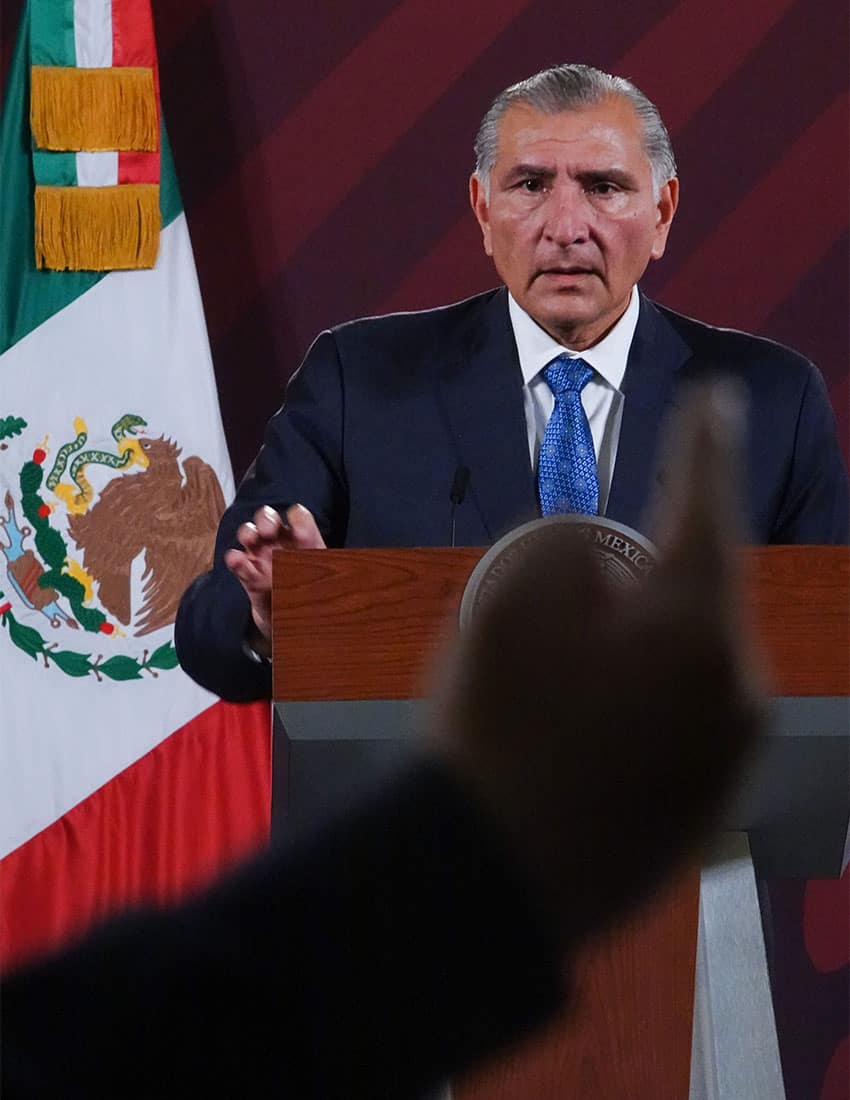
The former governor of Tabasco has aspirations to replace López Obrador on a full-time basis, a goal that might have become slightly more obtainable given the increased prominence he gained by stepping in for Mexico’s preeminent political participant this week.
Monday
“As you well know, the president of the republic reported yesterday that he had tested positive for COVID,” López Hernández said at the beginning of the first press conference of the week.
AMLO is isolating and receiving medical care and is expected to return to his mañaneras in two or three days, the interior minister said.
Responding to reporters’ questions later in the presser, López Hernández specified that López Obrador was recovering at the National Palace – within which he has an apartment – and explained that he began experiencing cold-like symptoms on Saturday night.
“There was no emergency transfer [from Mérida to Mexico City], there was no fainting episode,” said the former governor, rejecting a report published Sunday by the Diario de Yucatán.
Questioned about the newspaper’s assertion that the president suffered a heart attack or “cardiac complication,” López Hernández responded:
“No, … nothing like that [happened]. That is what [his detractors] would like, but he’s in good health. He said it himself yesterday, he’s 100% fine in terms of cardiac health.”
Questions about AMLO and his health dominated reporters’ engagement with the interior minister, but López Hernández also responded to queries related to a few other issues.
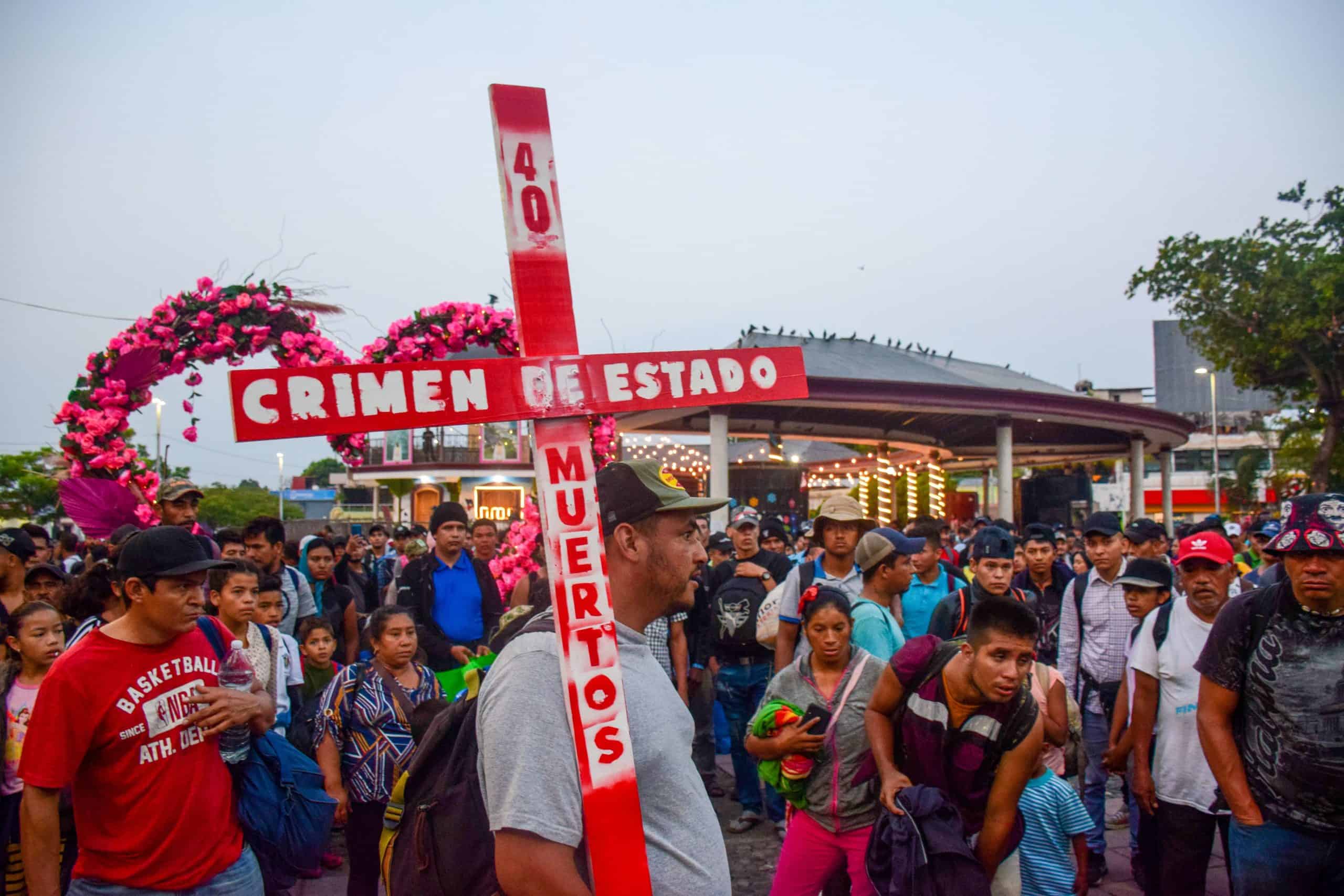
Asked about Chihuahua Governor Maru Campos’ recent request to the federal government to stop the flow of migrants to the north of the country, he stressed that Mexico is a “country of asylum” with its “doors open” to those fleeing adverse situations in their home nations.
Although hundreds of thousands of migrants have been detained and deported since López Obrador took office in late 2018, the federal government seeks to “guarantee” migrants’ “free passage” through Mexico, López Hernández said.
He noted that a new migrant caravan left Tapachula, Chiapas, on Sunday, and said that federal and state authorities were providing its members with all the “care” they need as they move through the country.
The interior minister also weighed in on the case involving United States company Vulcan Materials, whose marine terminal near Playa del Carmen was occupied by federal and state forces in March due to its alleged failure to comply with an injunction ordering it to allow the building materials company Cemex to use the facility.
“I understand that … [Vulcan subsidiary Sac-Tun] unilaterally decided to suspend Cemex’s activities at the port,” he said.
“… I understand that there is now an agreement … and operations have resumed,” López Hernández said before railing against Vulcan for what he called its “irrational looting” and “irrational exploitation” of the Quintana Roo coast through its extraction of gravel at a quarry that authorities shut down last year.
Earlier in the press conference, the head of the National Tourism Promotion Fund reported that tracks along 94 kilometers of the 234-kilometer-long Escárcega-Calkiní section of the Maya Train railroad have been laid.
Section 2 of the railroad – the entirety of which is slated to open in December – passes through six municipalities in Campeche and has two intermediate stations, one near the archeological site of Edzná and the other in Campeche city, Javier May said.
Numerous other officials provided updates on various government programs, including the Youths Building the Future apprenticeship scheme.
“Today 231,789 young people are in training,” said Deputy Labor Minister Marath Baruch Bolaños López.
“… This program is aimed at young people who don’t study or work and supports their … [transition] … to employment through workplace training for which they receive the minimum salary of 6,310 pesos [about US $350] per month,” he said, adding that the government has invested just over 4 billion pesos in the scheme so far this year.
Tuesday
AMLO’s health was also high on the agenda at the government’s second mañanera of the week.
Health Minister Jorge Alcocer reported early in the presser that the president had mild COVID-19 symptoms, but was in good health overall. López Obrador’s symptoms include inflammation of the upper respiratory tract, fever and fatigue, he said, adding that his treatment consists of taking paracetamol, staying hydrated and resting.
“He will be discharged in a few days,” Alcocer said, making an apparent reference to when AMLO was expected to come out of isolation at his National Palace residence.
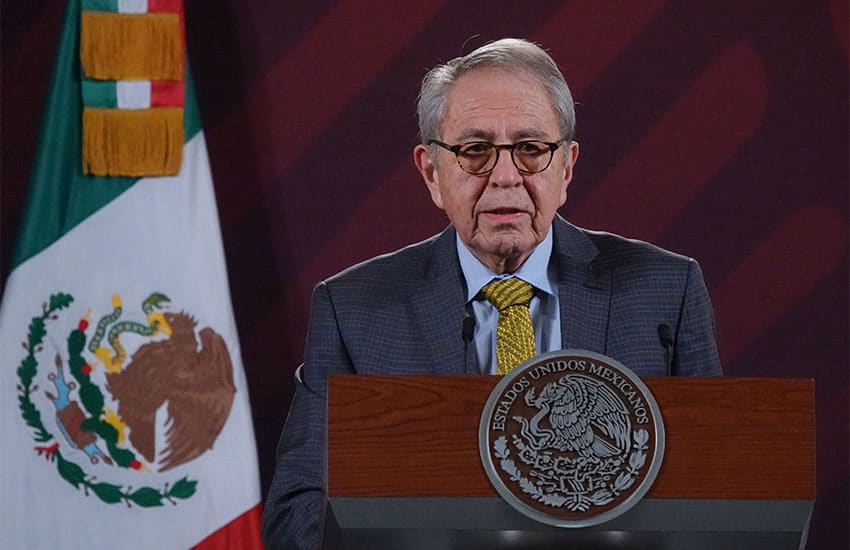
A reporter noted later in the presser that there is a pervasive “idea” that the president is ill with something other than COVID and asked the interior minister why AMLO hadn’t posted a video to social media to counteract the rumors.
“Of course there are voices that feed off disinformation,” López Hernández said.
“As one of the most read books, or possibly the most read book in the history of humanity says, they are the ones whose souls are rotten. There is nothing to hide; from the beginning we’ve said what the situation is and that the president is recovering,” he said.
López Hernández, who gave up the governorship of Tabasco to succeed Olga Sánchez Cordero as interior minister in 2021, later expressed his support for the Supreme Court’s ruling that the governing body of the National Institute for Transparency (INAI) cannot convene with just four commissioners.
Justice Loretta Ortiz’s ruling was “issued in accordance with the law,” he said.
The interior minister denied that the government was pleased to see the INAI inoperative – as leaked audio indicated – and stressed that it was up to the Senate to appoint additional commissioners so that its governing body can convene.
He also fielded a question on proposed reforms to mining, water and environmental laws that passed the lower house of Congress last week and the Senate on Friday.
“The most important” aspect of the legislation, López Hernández said, is that “the human right to water” takes precedence over mining.
Deputy Health Minister Hugo López-Gatell, who spoke about the risks associated with using electronic smoking devices early in the press conference, returned to center stage late in the mañanera to respond to a question about a new law that bans the addition of trans fats to processed food and beverages.
Health regulator Cofepris will carry our inspections of food and beverage manufacturers in order to enforce the ban, said López-Gatell, who is best known as Mexico’s COVID czar.
Before bringing the mañanera to a close, López Hernández extended his congratulations to a Mexican team of women archers who won a gold medal at the World Archery Cup in Turkey last Sunday.
Wednesday
Puebla Governor Sergio Salomón Céspedes was invited to speak after a brief introduction from López Hernández, and proceeded to offer a lofty description of the weekday morning press conference, over which AMLO began presiding two days after he was sworn in as president.
“The mañanera will always be remembered as the maximum exercise of openness and transparency that a government has had with Mexicans,” said the Morena party governor, who replaced Miguel Barbosa after his death last December.
“… President Andrés Manuel López Obrador: know that in Puebla we are always attentive to your health as well as the directives you give for the transformation and prosperity of our country. We wish you a quick recovery, we know we will have [you as] president for a long time yet,” Céspedes said.
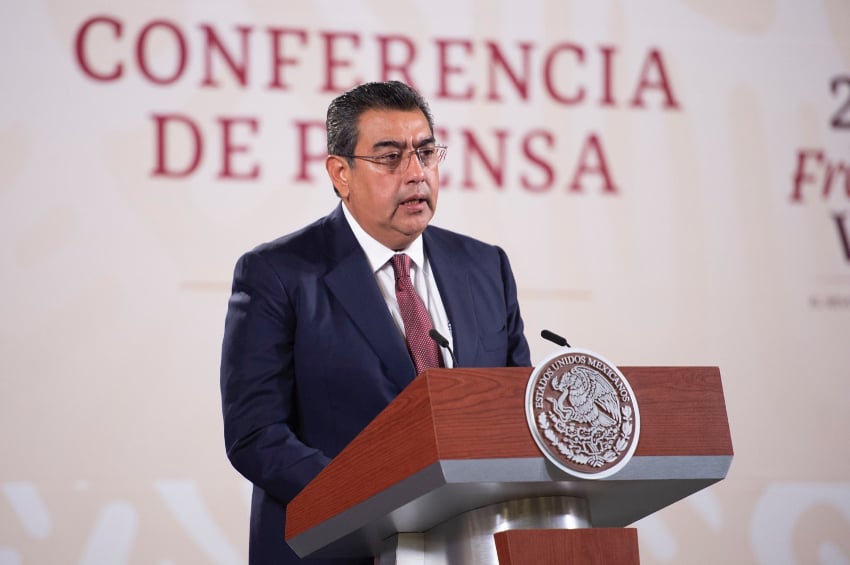
“… A lot of us would like to have your energy, but especially your conviction and consistency. Mr. President, you are a great example,” he added.
In her “Who’s Who in the Lies of the Week segment,” Ana García Vilchis highlighted the responses of the Russian Embassy in Mexico to two allegedly spurious newspaper reports.
“Look, this is a gem,” she said, referring to a tweet the embassy published in response to a report by Reforma that said that “United States authorities suspect that Tajikistan, the country to which Mexico sold the presidential plane [last week], could serve as a bridge to get various products to Russia, including aerospace components [whose sale] to Moscow was prohibited after its invasion of Ukraine.”
The Russian Embassy said it didn’t understand how the sale of the presidential plane was related to “banned products” reaching Russia, but added that “thanks to Reforma we can now imagine what components will fly to Russia.”
A photoshopped image showing a variety of items in the plane’s presidential bedroom was included in the tweet.
“The banned components in Russia – we hope [they are] not … – are tacos, esquites, tequila, the delicious avocado and other things of national interest,” García said. “We hope they eat tacos and esquites in Russia.”
The government’s media monitor also drew attention to a tweet in which the Russian Embassy rejected an El Universal column that claimed that it was Russia, rather than Tajikistan, that bought the presidential plane.
“The Russian Embassy responded with a lot of humor, [saying] ‘another surrealist story was published in El Universal,'” García said.
“The embassy says, ‘thanks to ‘the reputable international sources’ we found out that the plane wasn’t bought by … [the] unknown [country] Tajikistan but by Russia,” she said before continuing to read the tweet. “‘The West will do anything to manipulate public opinion.'”
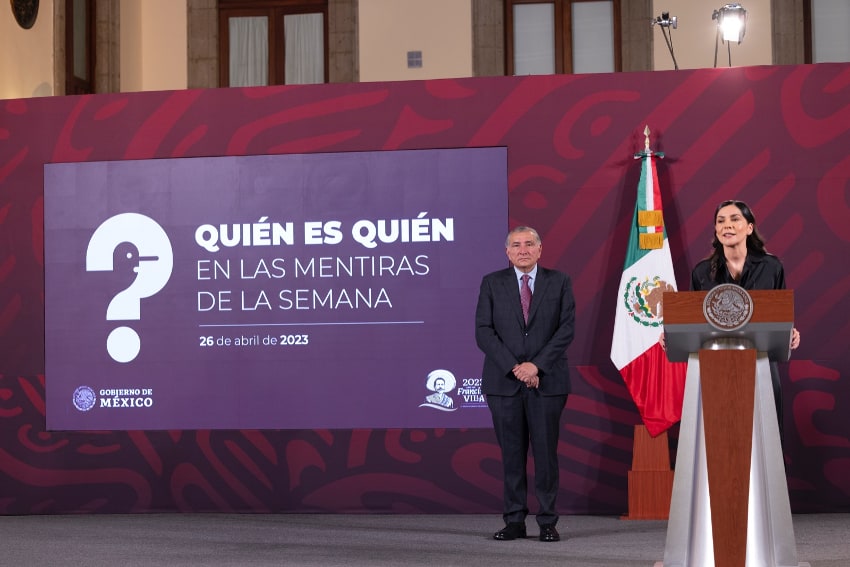
Responding to a reporter’s question, López Hernández said that the postponement of a regional anti-inflation summit in Cancún that was scheduled for early May had nothing to do with AMLO’s COVID infection, even though the Ministry of Foreign Affairs explicitly said that the decision was taken after finding out about the president’s positive test result.
“As I said a moment ago, we believe, and the doctors maintain, that the president will resume his normal activities … before the weekend,” the interior minister said.
He asserted later in the press conference that the head of the National Immigration Institute (INM), Francisco Garduño, wouldn’t be distracted from his job despite facing a criminal charge related to a detention center fire in Ciudad Juárez that claimed the lives of 40 migrants.
Garduño, who was formally charged on Tuesday, will “probably” fulfill his requirement to periodically sign in with authorities in Ciudad Juárez while he is on official INM business in Chihuahua, López Hernández said.
In response to another question, the interior minister played down the proposal to incorporate the National Institute of Health for Well-Being (Insabi)– a government department created in 2020 that was tasked with providing medical services to millions of Mexicans without insurance – into the Mexican Social Security Institute.
“The most important thing is that universal, free health care is guaranteed for all Mexicans,” he said a day after a bill that seeks to disband Insabi passed the lower house of Congress with the support of the ruling Morena party and its allies.
Thursday
It was a two-man show on Thursday with the general director of the National Institute of Anthropology and History (INAH) accompanying the interior minister during a 100-minute mañanera at the national palace.
Diego Prieto, an anthropologist who has been at the helm of the INAH since 2017, told reporters at the beginning of the presser that “very significant” discoveries have been made along the route of the Maya Train railroad, including the finding of a rare stone sculpture of the Mayan god K’awiil, a deity linked to power, abundance and prosperity.
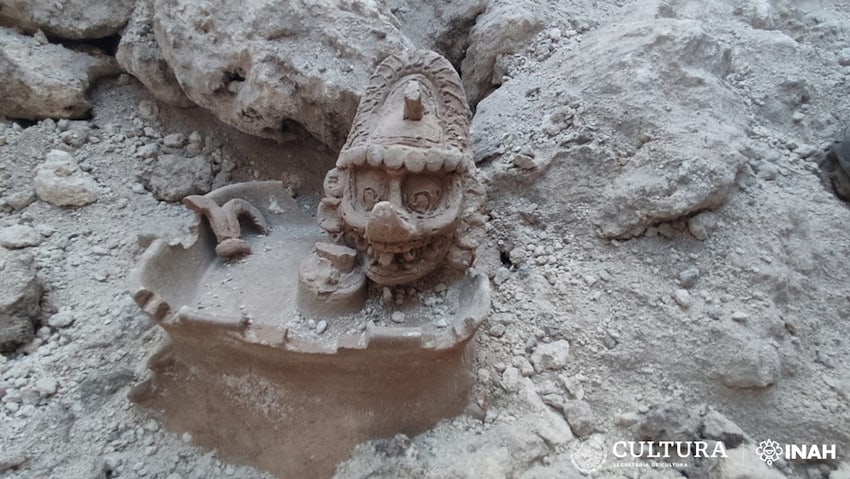
Along Section 7 of the railroad – which will link Chetumal, Quintana Roo, to Escárcega, Campeche – pre-Hispanic structures and platforms have been found “at practically every step,” Prieto said.
“… We’ve had to come up with imaginative and painstaking engineering solutions to save … these archaeological structures,” he said, adding that many of the ancient edifices could be restored so that Maya Train passengers can enjoy their splendor from the comfort of their seats.
López Hernández relived the INAH chief at the mañanera lectern and got straight down to responding to the questions of the day.
The “campaign of hate” directed at the president as he recovered from COVID is regrettable, he said, referring to unfounded claims that López Obrador suffered a heart attack or stroke.
“As we’ve said since Monday … and as he made known on Sunday, the president, fortunately, is fine,” the interior minister said.
“… The way in which some media outlets, pseudo-journalists and pseudo-columnists respond to dark interests is truly miserable,” López Hernández said.
Asked whether he believed that some people really want AMLO to die, he responded:
“What they have written and what they have said is there for Mexicans to make up their own minds.”
López Hernández later took a leaf out of AMLO’s book and launched an attack on Felipe Calderón when asked about the former president’s meeting in Lima earlier this week with Peruvian President Dina Boluarte, whose government has been described as “spurious” by López Obrador.
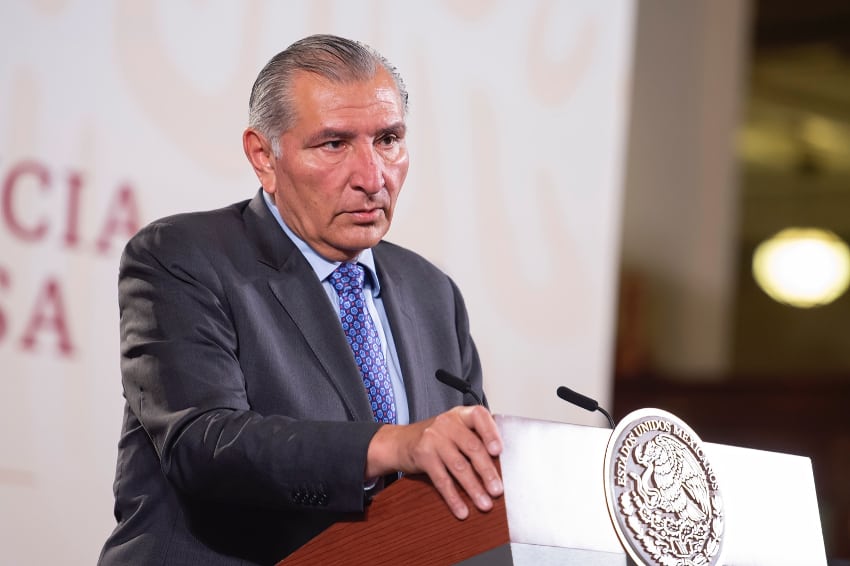
“Mexicans know that if anything has characterized Felipe Calderón it has been his selling-out to foreign interests,” the interior minister said.
“If I remember correctly, he ended up as an employee of a Spanish energy company, I think it’s called Iberdrola,” he said, adding that any sense of nationalism Calderón might have wasn’t on display when he “stole the presidency” in a hotly contested 2006 election in which López Obrador was his main rival.
Among other remarks, López Hernández stressed that the government’s position with regard to the Ciudad Juárez detention center fire is that justice must prevail. There must be no impunity for those found to be responsible for the deaths of the migrants, he said.
Shortly afterwards, the interior minister thanked reporters for their time and in AMLO-esque fashion disclosed his breakfast menu, announcing that he would chow down on small tamales called chanchamitos.
Friday
“I’m very happy to be here with you again,” AMLO said upon his return to his mañanera after a week-long absence.
“Firstly, I’d like to wholeheartedly thank the people of Mexico for their support, their solidarity. … I’m thinking about almost all Mexicans, who expressed concern about my COVID infection. There were displays of affection, a lot of blessings, good wishes, prayer chains, a lot of solidarity,” he said.
“… People became concerned because there was sensationalism, yellow journalism and bad faith,” López Obrador said, adding that he had recovered and was determined to continue the “transformation” of Mexico for the good of “our beloved people.”
In his opening monologue, AMLO also outlined a range of ways in which his government has cut costs, highlighting that the military institution that was formerly tasked with protecting the president of the day – the Estado Mayor Presidencial – was disbanded, overseas trade offices were closed, public trusts were abolished and salaries for high-ranking officials were reduced.
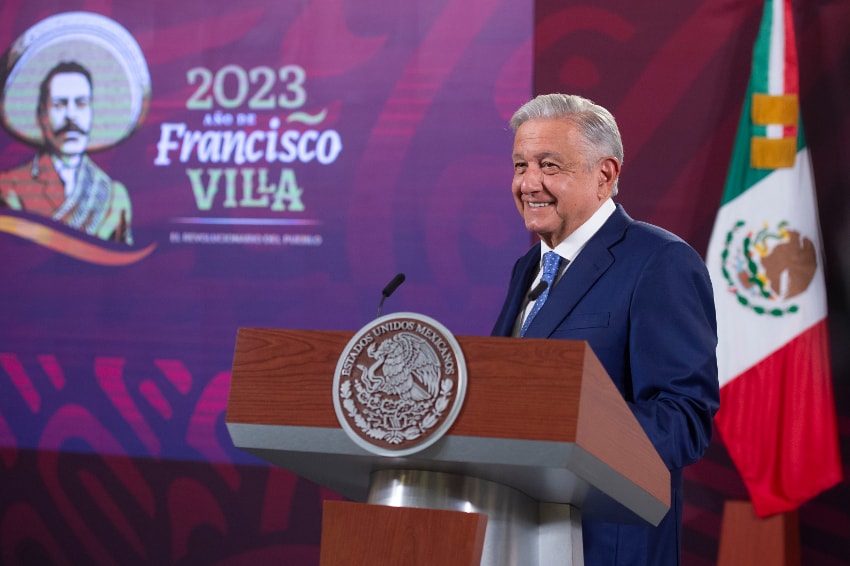
In the past, the federal government “guzzled the entire budget itself,” López Obrador bemoaned. “It was an enormous apparatus, an extremely expensive, onerous, golden bureaucracy. The people weren’t given anything,” he said.
The head of the state-owned development bank Banobras later reported that there were 93 expressions of interest related to purchasing the presidential plane before the US $92 million sale to the government of Tajikistan was completed.
Jorge Mendoza Sánchez noted that the plane – which was purchased in 2012 for $217 million – was scheduled to leave Mexico on Friday afternoon, a departure that went ahead as planned.
“The sale was carried out through the Institute to Return Stolen Goods to the People,” the Banobras chief said, adding that the sale price matched the commercial value of the aircraft as determined by the Institute of Administration and Evaluation of National Assets.
Mendoza also sought to dispel any doubts about the purchaser, noting that Tajikistan is a member of international intergovernmental organizations including the United Nations and the C5+1 group, a “diplomatic platform” through which the United States engages with the governments of five Central Asian countries.
During his engagement with reporters, López Obrador noted that in light of his most recent bout of COVID, doctors advised him to drink a lot of water and not overexert himself.
“It’s very good to be drinking water, water and water, hydrating the body. … I’m going to rest, I have time [to do so], but I [also] have a mission to carry out; there’s not long to go [in my six-year term] … about a year and five months, but as I work double [the hours of a regular worker], it means I have two years and 10 months left. So I have to keep going, consolidate the welfare programs,” he said.
AMLO later repeated his assertion that the INAI – which remains out of action after a vote in the Senate on Thursday failed to attract the support required for the appointment of a new commissioner – is “useless” and was created to “simulate” that corruption was being tackled.
“When has there been more corruption in Mexico? In the period that the institute has been [in operation], excluding our own [time in office],” he said.
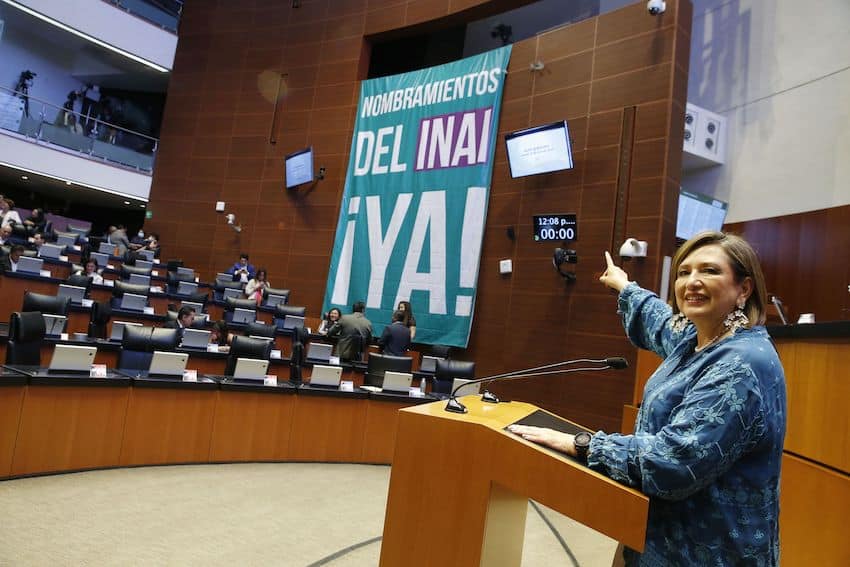
The president said he would like to see the transparency agency disbanded and its duties taken over by the Federal Auditor’s Office. One billion pesos a year would be saved, he said, explaining that “waste, superfluous expenses and privileges” would come to an end.
Toward the end of his sole mañanera appearance of the week, López Obrador once again took aim at one of his chief antagonists in the Mexican press, Carlos Loret de Mola, as well as television journalists and news anchors in general.
Loret de Mola, who has exposed alleged corruption within the current government, “is a journalist at the service of the magnates,” he said.
“There is a more precise word, but it’s very strong and I don’t want to use it. [Such journalists] are paid very well … to always pounce on those who oppose corruption,” AMLO said.
“… In the case of television, … they read – they’re not capable of improvising, they have the so-called teleprompter, and so it appears that they’re improvising, but they’re not – they’re reading, they’re newsreaders,” he said.
After proving over a period of three hours that he hadn’t lost his penchant or flair for pugnacious oratory during his enforced absence from public life, the three-time COVID survivor told reporters he was off to eat something for breakfast to ensure he didn’t suffer another váguido, the word he used to describe his brief fainting spell last Sunday.
By Mexico News Daily chief staff writer Peter Davies ([email protected])
